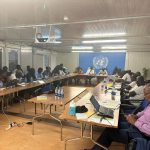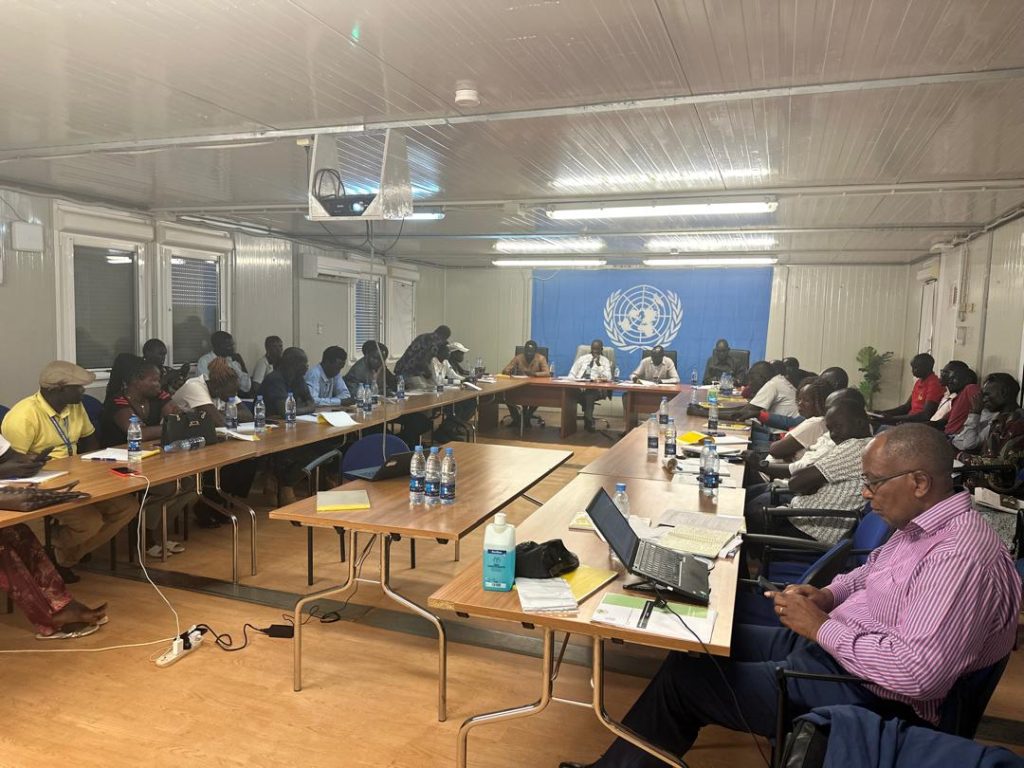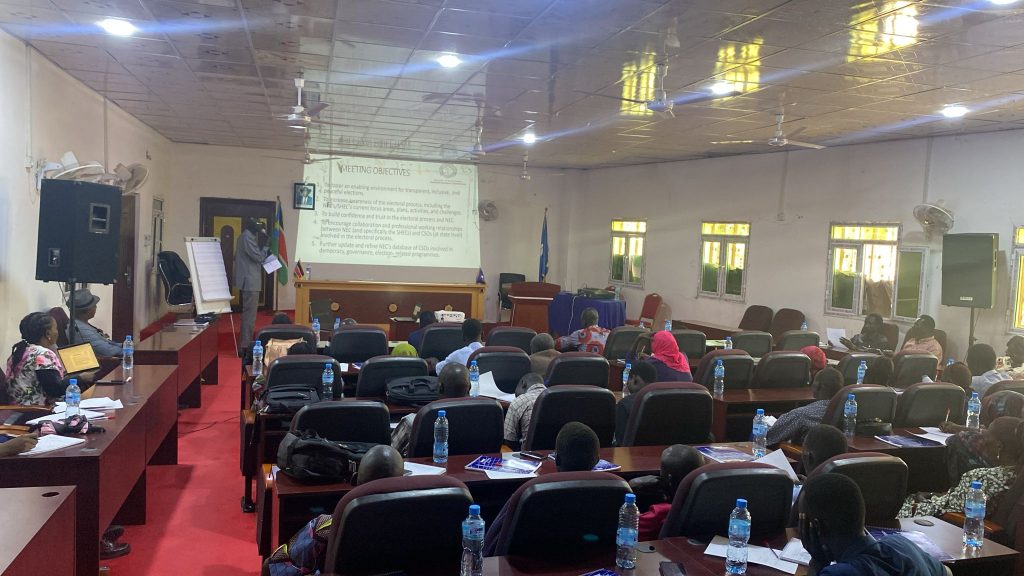NEC LAUCHES TWO FIRST STATE-LEVEL ENGAGEMENTS WITH CIVIL SOCIETY IN BENTIU AND MALAKAL

UN-IEAT supported the NEC to conduct the first two state-level engagements with CSO, i.e., in Bentiu (Unity State) and Malakal (Upper Nile State) on 05 March 2025. The events were hosted on UNMISS premises in the two states with key logistical and administrative support provided by the UNMISS field offices and UNIEAT UNVs recently recruited and deployed to the two states.

The events were well attended by about 45 invited participants from each state. The meeting in Unity State was held at on the UNMISS premises in Rubkano and was attended by 33 CSO representatives including 7 women, while the one in Upper Nile was held in the Legislative Assembly Chamber in Malakal town and was attended by 47 CSO representatives including 11 women. Each meeting was convened and moderated by the respective chairperson of the State High Committee (SHEC) of the NEC, Honorable Peter Mayom Pur for Upper Nile, and Honorable George Kuong Gattang for Unity. The meetings started with opening remarks read out on behalf of the Chairperson of the NEC, Honorable Professor Abednego Akok Kacuol, who commended CSOs for their active engagement with the electoral process and support to the NEC in the preparations for the next elections including their participation in the first two NEC state-level engagements with CSOs. “The NEC remained committed to creating an enabling environment based on, among other things, stakeholder trust and confidence in the electoral process and institutions. This will go a long way to guarantee credible elections which will serve as a firm foundation for sustainable peace, democracy, and development in South Sudan”, he pointed out.

The meetings sought to bring state-level CSOs including community and faith-based organizations, and media with the SHEC to raise public awareness and foster working relations between the NEC and SHECS on the one hand, and CSOs as key electoral stakeholders. The meeting also sought to discuss NEC preparations for December 2026 based on the revised transition timeline of the Revitalized Agreement on the Resolution of the Conflict in South Sudan (R-ARCSS) of 2018. Among related issues discussed were the election timelines, funding, legal and political issues impacting election preparations. The SHECs used this platform to inform CSOS about ongoing NEC activities such as NEC institutional strengthening including training and capacity building most of which is provided by the UNIEAT; ongoing legal reform, establishing the NEC presence at the state level through office construction and refurbishment, support to NEC business processes and policy development covering areas such as civic and voter education, stakeholder engagement, gender and inclusion, corporate branding and communication also engagement with key national stakeholders including the presidency to discuss the NEC funding, organogram, legal reform; CSOs t discuss civic and voter education, election observation; and NPS on election security issues; also regional and international partners on technical and financial support.
Among the comments and questions from CSOs in the two meetings were: concern about the lack of NEC and election funding and the impact this has on NEC credibility and capacity to deliver elections in two years; continued insecurity including the recent upsurge in violence in Upper Nile and how these could adversely impact the country preparedness for elections. Participants in the two meetings resolved to work closely with the NEC and the SHECs in areas such as civic and voter education and to actively participate in relevant coordination structures once the NEC has set them up at state and local levels. An issue raised in the meetings was the concern about the increasing number of internally displaced persons due to conflict and flooding – the latter has rendered many communities inaccessible by road and without access to many government services. Reaching out to water-locked communities may be a challenge when it comes to civic and voter education, voter registration, election campaigning, and the voting process itself.
The NEC used these two occasions to validate the database of CSOs working on democracy, human rights, inclusive participation and elections and the meetings agreed to regularly update the database with the support of the SHECs and UNIEAT in each state.